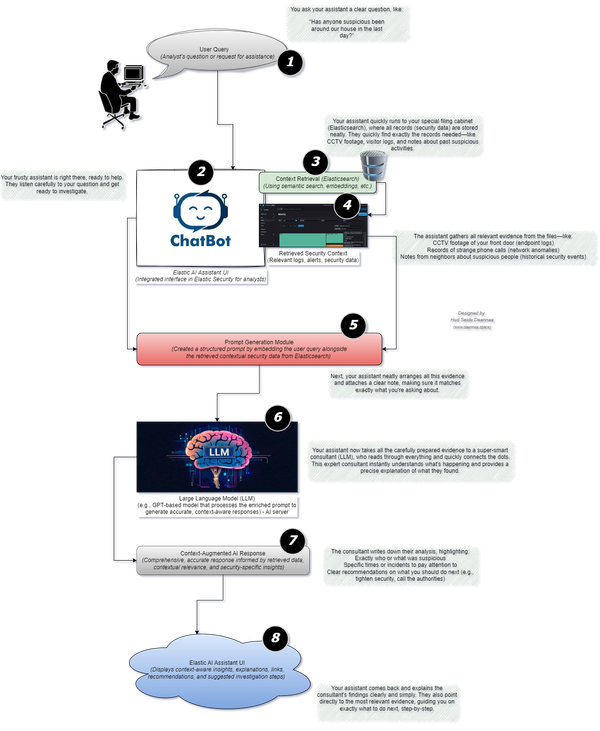Data: The Hidden Force Shaping Our World
Data is the new oil of the digital age, shaping our choices, behaviors, and identities. It influences everything from personalized experiences to public policy. Understanding its origins, ownership, and the need for protection is crucial as we navigate this increasingly data-driven world.

Introduction
In an era where every click, swipe, and interaction is recorded, data has emerged as one of the most powerful forces in our society. Often referred to as the "new oil," its value extends beyond mere economic comparisons. Data serves as a mirror of our digital lives, reflecting our choices, behaviors, and identities. This article delves into the profound importance of data, its origins, ownership issues, multifaceted uses, and the imperative of its protection in the modern world.
1. The Lifeblood of the Digital Age
Data is not just a byproduct of the digital revolution; it is the very foundation upon which the digital world is built. Every app you use, every website you visit, and every device you interact with generates data. This data is collected, analyzed, and utilized to create personalized experiences, optimize services, and drive innovations that shape our everyday lives.
2. Tracing the Origins: Where Data Comes From
The sources of data are as varied as the data itself. It can originate from personal interactions online, such as social media posts and search queries, or from more passive sources like sensors in smart devices, transactional records, and biometric data from health apps. The sheer volume of data generated daily is staggering, with IDC predicting the global datasphere will reach 175 zettabytes by 2025 .
3. The Power Struggle: Who Owns the Data?
Ownership of data is a hotly contested issue. While individuals may assume that the data they generate is theirs, the reality is more complex. Corporations, governments, and third-party entities often claim ownership or control over data, leading to debates about privacy, consent, and the ethical use of information. In many cases, individuals have little to no control over how their data is used, stored, or shared .
4. The Multifaceted Uses of Data
Data is incredibly versatile. It is used to tailor advertisements, improve products, predict trends, and influence political campaigns. In the corporate world, data-driven decision-making has become the norm, enabling businesses to optimize operations, enhance customer experiences, and gain a competitive edge. Beyond commerce, data plays a crucial role in public health, security, and governance, making it an essential tool in addressing societal challenges .
5. The Digital Repository: Where Data Lives
Data does not simply float in the ether; it is stored in massive data centers around the world, often managed by cloud service providers. These data centers are the backbone of the internet, housing everything from personal emails to critical business applications. The physical location of data storage can significantly impact privacy and security, as different jurisdictions have varying regulations on data protection .
6. Understanding the Nature of Data
Data can be anything that can be quantified, recorded, and analyzed, ranging from simple numerical values to complex datasets comprising multiple variables. In essence, data represents reality, but it is also malleable—its interpretation can vary greatly depending on the context and the tools used for analysis .
7. The Demand for Data: Who Wants It and Why?
The appetite for data is insatiable. Corporations seek data to understand consumer behavior, governments need it for policy-making, and cybercriminals pursue it for financial gain. Even individuals may seek access to data for personal or professional reasons. The value of data lies in its ability to provide insights, predict outcomes, and influence decisions, making it a highly sought-after commodity .
8. The Imperative of Data Protection
With great value comes great responsibility. The more data we generate, the more vulnerable we become to breaches, hacks, and misuse. Data protection is not just about securing information from external threats; it also involves ensuring that those who handle data do so ethically and transparently. The consequences of data breaches can be severe, ranging from financial losses to erosion of trust and even threats to national security .
9. The Birth of Data Privacy Regulations
In response to growing concerns about data misuse, governments worldwide have enacted data privacy regulations like the General Data Protection Regulation (GDPR) in Europe and the California Consumer Privacy Act (CCPA). These laws are designed to give individuals more control over their data and ensure that organizations are held accountable for how they collect, store, and use personal information. Such regulations serve as both legal requirements and ethical guidelines for building trust in the digital age .
10. Data in the Modern World: Its Role and Future
Today, data is at the heart of nearly every industry. From AI and machine learning to big data analytics, the ability to harness data effectively differentiates successful organizations from their competitors. As we move into an increasingly data-driven future, the ethical management and protection of data will be critical in determining the sustainability and integrity of our digital society .
Analysis
Data is more than just a technical term; it is the currency of the modern world, influencing everything from the products we buy to the policies that govern us. As its role in society continues to expand, so too must our efforts to understand, protect, and ethically manage it. In doing so, we not only safeguard our personal information but also preserve the trust and integrity that underpin the digital age.
References
- The Hidden Depths: Embracing Data as an Ecosystem. (2021, April 28). LinkedIn. Retrieved from LinkedIn
- 5 Big Data Facts You Should Know: What Experts Think! (n.d.). VLink. Retrieved from VLink
- Nine Forces Shaping our Future: From Data Science to Robotics to AI. (2019, January 2). LinkedIn. Retrieved from LinkedIn
- Trust is the Hidden Force Shaping the Generative AI Market and Google Keeps Squandering It. (2023, March 24). Synthedia. Retrieved from Synthedia





